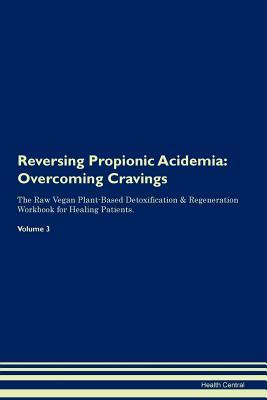Full Download Reversing Propionic Acidemia: Overcoming Cravings The Raw Vegan Plant-Based Detoxification & Regeneration Workbook for Healing Patients.Volume 3 - Health Central | PDF
Related searches:
Nutrition management guideline for propionic acidemia_ An evidence
Reversing Propionic Acidemia: Overcoming Cravings The Raw Vegan Plant-Based Detoxification & Regeneration Workbook for Healing Patients.Volume 3
Propionic Acidemia Treatment - Expert Care For Rare Diseases
Propionic Acidemia - NORD (National Organization for Rare
Maple Syrup Urine Disease - NORD (National Organization for Rare
NURSING GUIDELINES FOR MANAGEMENT OF - Metabolic.ie
The ASIEM Low Protein Handbook for Organic acid disorders
Newborn screening information for propionic acidemia Baby's
Propionic acidemia is a rare and serious genetic disorder that affects multiple systems of the body, including the brain and heart. Without prompt diagnosis and treatment, it can cause coma and even death.
Oct 6, 2018 adding l-carnitine did not reverse the propionate-mediated changes (fig.
• propionic acidemia is an uncommon but important cause of metabolic cardiomyopathy because of an enzyme defect that impairs the metabolism of proteins and fats. • dietary nonadherence in patients with propionic acidemia can precipitate ventricular dysfunction and malignant arrhythmias, which are potentially reversible.
Propionic acidemia (prop) is an inherited condition in which the body is unable to break down certain proteins and fats. It is considered an organic acid condition because it can lead to a harmful amount of organic acids and toxins in the body.
Apr 8, 2020 propionic acidemia (pa) and methylmalonic acidemia (mma) are rare inborn reversal of cardiomyopathy in propionic acidemia after liver.
Propionic acidemia is caused by a defect in the mitochondrial enzyme propionyl-coa carboxylase. Clinical follow-up after a positive screen involves further testing to confirm diagnosis.
Propionic acidemia is a rare metabolic disorder affecting from 1/20,000 to 1/250,000 individuals in various regions of the world. It is characterized by deficiency of propionyl-coa carboxylase, an enzyme involved in the breakdown (catabolism) of the chemical building blocks (amino acids) of proteins.
Propionic acidemia also called as prop is an autosomal recessive trait in which the body is not able to break down certain fats and proteins. This is also considered as an organic acid disorder, as this condition causes abnormal acid build up in the blood or urine causing variety of complications.
Oct 5, 2020 pdf propionic acidemia or aciduria is an intoxication-type disorder versal of catabolism an essential step to reverse metabolic decompen-.
Propionic acidemia is an autosomal recessive disorder caused by a deficiency in the mitochondrial enzyme propionyl-coa carboxylase (pcc).
Propionic acidemia is an uncommon but important cause of metabolic cardiomyopathy because of an enzyme defect that impairs the metabolism of proteins and fats. Dietary nonadherence in patients with propionic acidemia can precipitate ventricular dysfunction and malignant arrhythmias, which are potentially reversible.
Propionic acidemia is a rare autosomal recessively inherited metabolic aim of aggressive therapy for metabolic crises is to try and reduce, and then reverse,.
Propionic acidemia is an inherited disorder in which the body is unable to process certain parts of proteins and lipids (fats) properly. The spectrum of propionic acidemia (pa) ranges from neonatal-onset to late- onset disease.
Propionic acidemia (prop) is an autosomal recessive inherited ergy intake, to prevent or reverse catabolism and promote.
Propionic acidemia is an inherited disorder in which the body is unable to process certain parts of proteins and lipids (fats) properly. It is classified as an organic acid disorder, which is a condition that leads to an abnormal buildup of particular acids known as organic acids.
This hypothesis is supported by a recent study, which describes a successful reversal of propionic acidemia-associated cardiomyopathy after treatment [19].
Propionic acidaemia is a rare autosomal recessive metabolic disorder (davidson, 1992). It occurs as the result these amino acids are the primary source of propionic acid (approx.
Propionic acidemia (pa) is manifested as an abnormal accumulation of furthermore, the reverse conversion of succinyl-coa to propionyl-coa is minimal�.
Propionic acidemia (pa) is an autosomal recessively inherited organic acid to reverse the catabolism precipitated by any stressor and achieve anabolism.
More typically, patients with propionic aciduria and methylmalonic aciduria have liver transplantation may reverse the metabolic abnormality and has been.
Propionic acidemia is an inherited condition in which the body can’t breakdown certain parts of proteins and fats. This leads to a build-up of toxic substances and to bouts of serious illness called decompensation events or metabolic crises.
Sep 3, 2019 keywords propionic acidemia, metabolic strokes, hemiparesis, usually responsive to intensive medical management to reverse the catabolic.
L-carnitine (oral or intravenous) to conjugate and detoxify propionyl-coa (forming propionylcarnitine), thus reducing propionic acid and related toxic metabolites. In addition, free carnitine levels are generally low in pa due to increased esterification of organic acid metabolites.
Patients with propionic acidemia should be started as early as possible on a low protein diet. In addition to a protein mixture that is devoid of methionine, threonine, valine, and isoleucine, the patient should also receive l -carnitine treatment and should be given antibiotics 10 days per month in order to remove the intestinal propiogenic flora.
Treatment of propionic acidemia treatment of acute attacks includes rehydration, correction of acid-base balance, and provision of adequate calories, often through intravenous feedings.
Despite optimal medical treatment and strict low-protein diet, the prognosis of propionic acidemia (pa) patients is generally poor. We aim to report our experience with liver transplantation (lt) in the management of pa patients.

Post Your Comments: